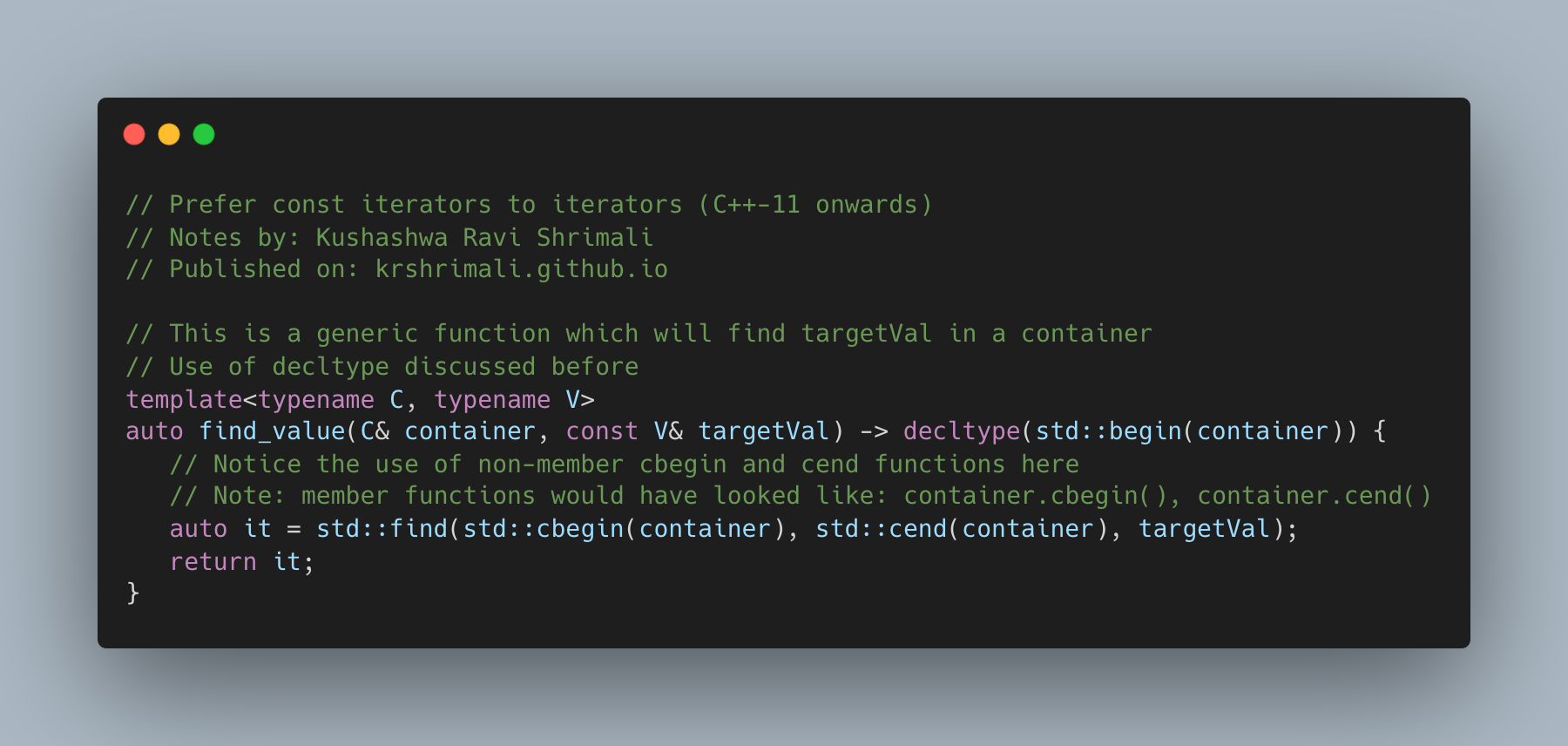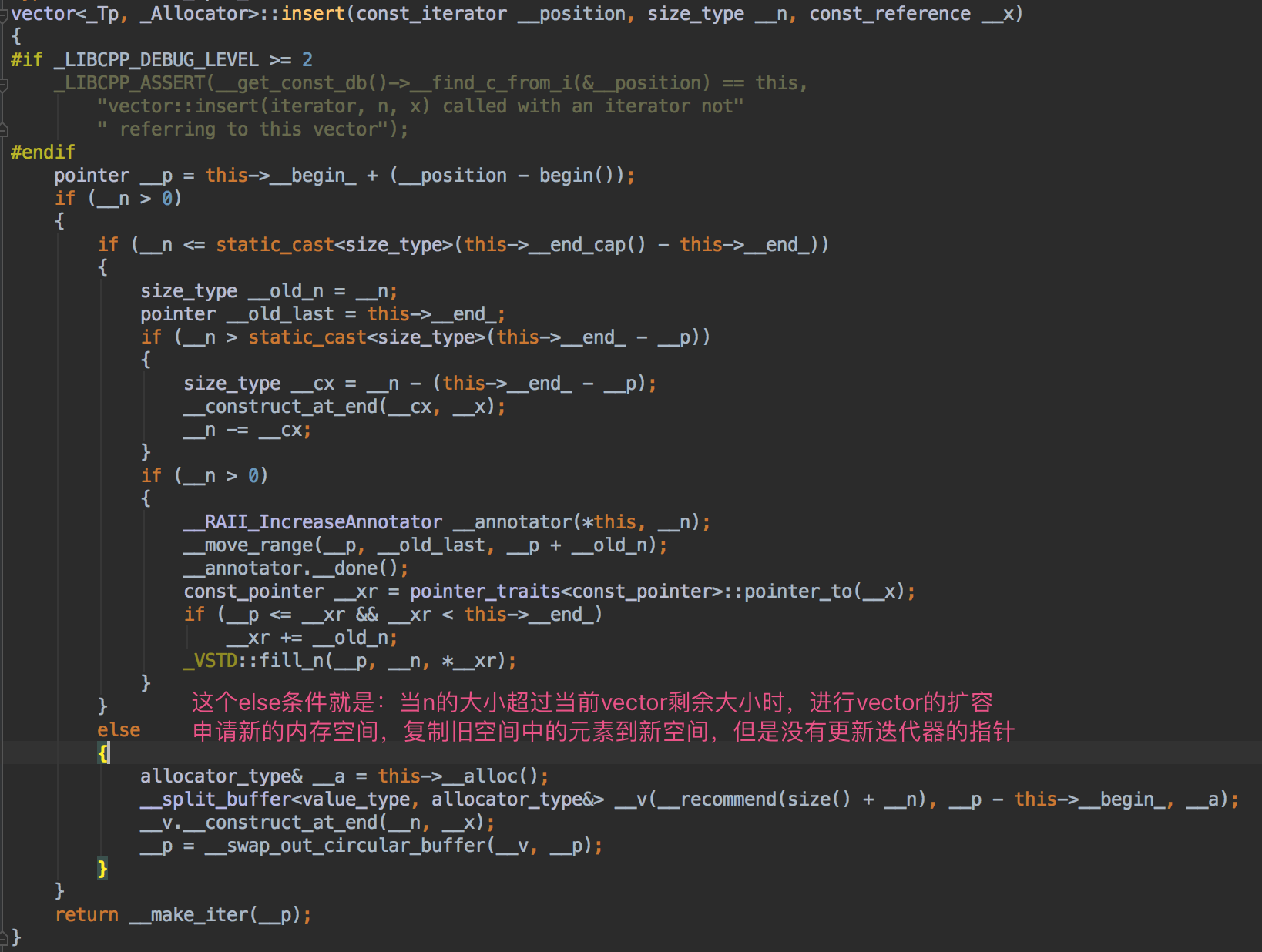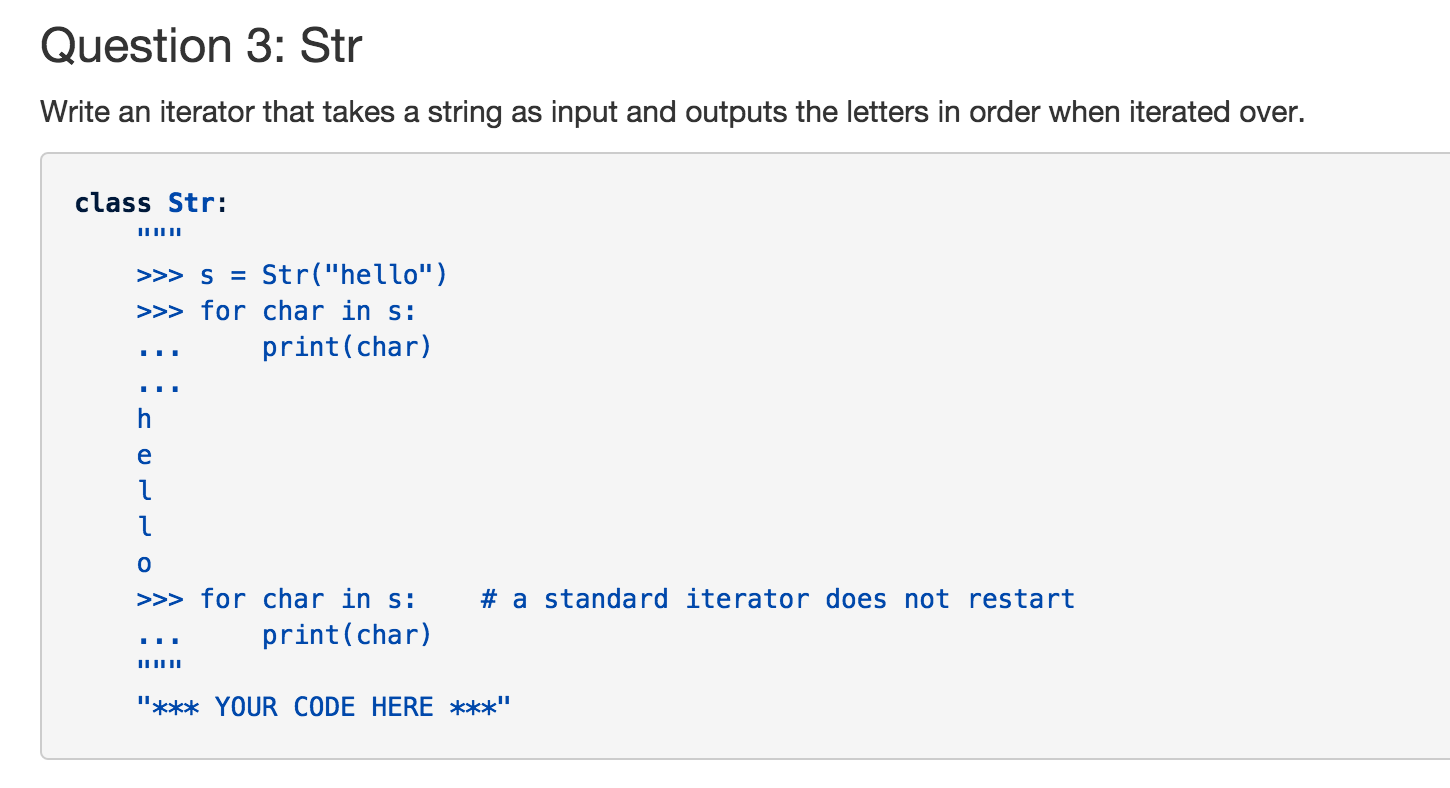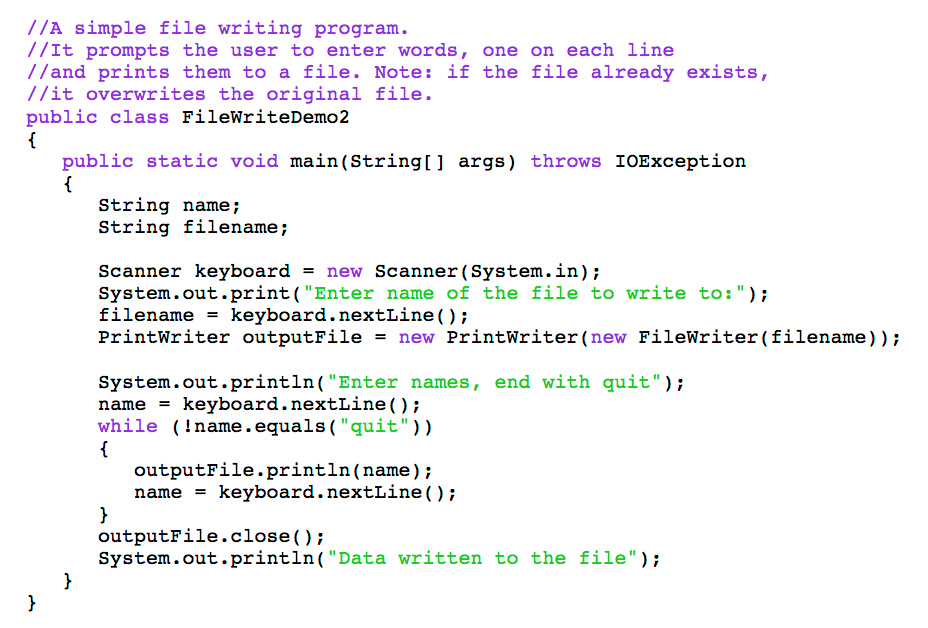Favorite Info About How To Write Iterator C++

Writing a custom iterator in modern c++.
How to write iterator c++. We can use the iterator with a vector in the same way as we can use the pointer with arrays. If you want to ensure that a given type fulfills the requirements of. The values in an array, or the characters in.
Template iterator</strong>::iterator_category class t, // iterator::value_type class distance = ptrdiff_t, //. Understanding iterators in c++. } const_iterator cbegin() const { return _begin;
} iterator end() { return _begin + _size; An iterator is an object that provides a way to access and iterate over a collection of elements. An iterator is any object that, pointing to some element in a range of elements (such as an array or a container ), has the ability to iterate through the.
I was surprised to find that iterator_traits<vector<int>::const_iterator>::value_type is int, not int const (t, instead of. Struct my_iterator { // no need for tagging or anything special, just implement the required interface. How to write an iterator in c++.
An iterator is an object that can iterate over elements in a c++ standard library container and provide access to individual elements. } const_iterator cend() const { return. How do these work?
Asked 12 years, 3 months ago. Insert iterators are special output iterators designed to allow algorithms that usually overwrite elements (such as copy) to instead insert new elements. Iterator with a vector in c++.
Also, the chosen overload set will be ambiguous for lvalue arguments. Creating custom iterators using c++20 concepts. It doesn't make sense to overload.
Writes through an iterator are indirect, through operator*. An iterator is an object designed to traverse through a container (e.g. It acts as a pointer that points to an.
Iterator begin() { return _begin;
















